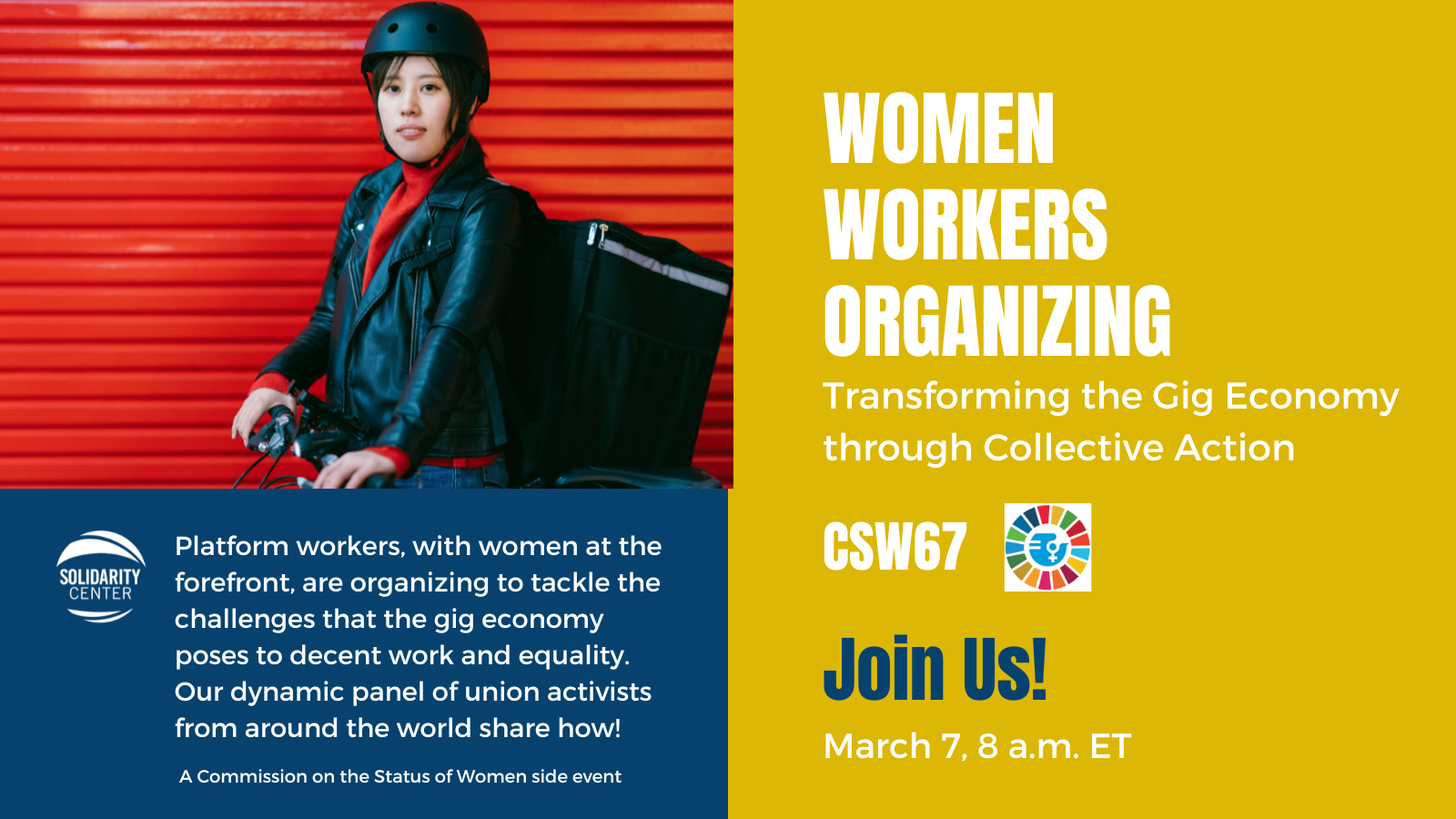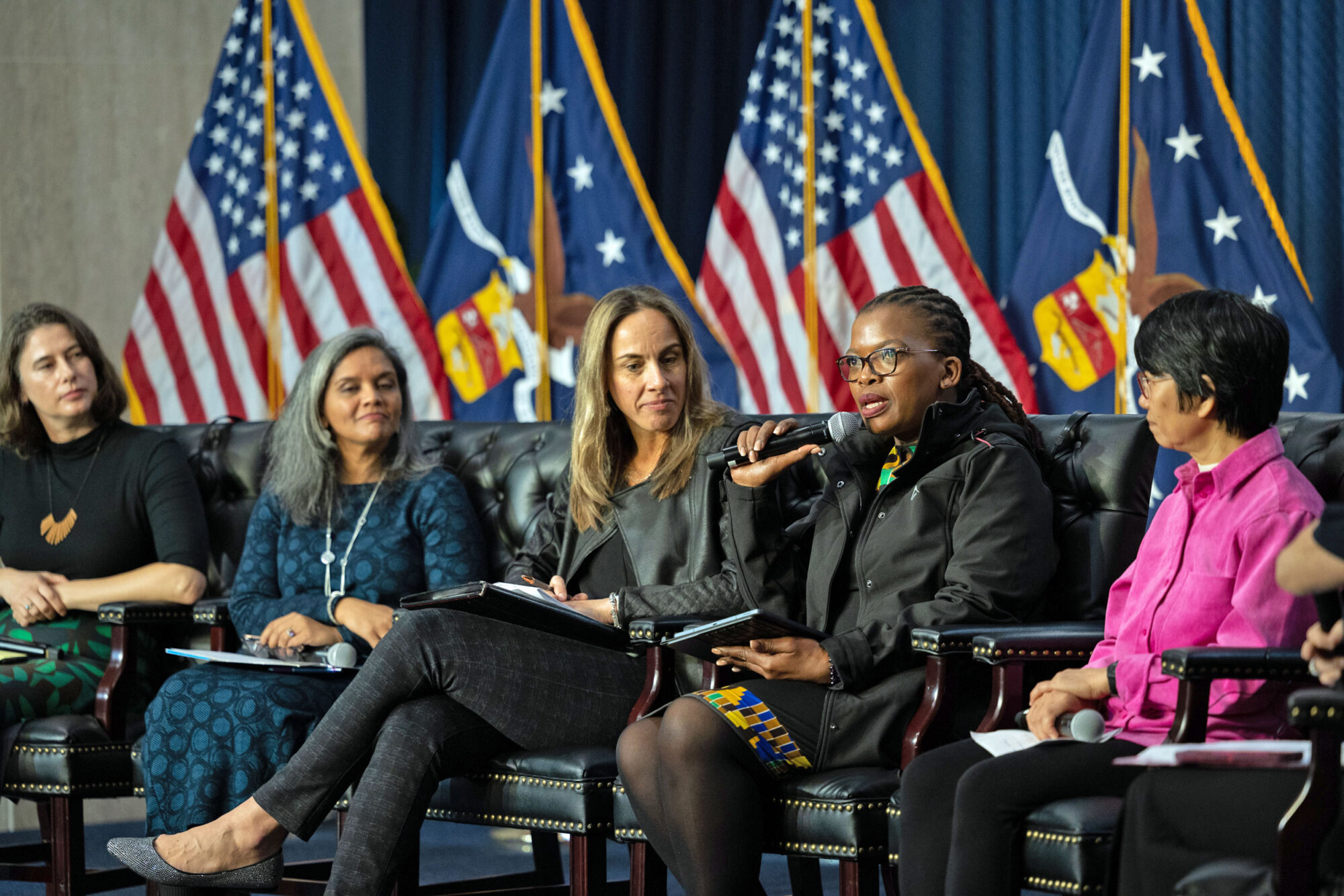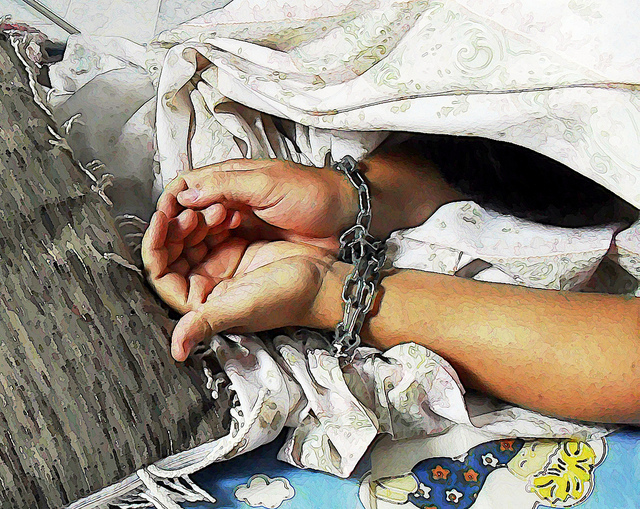App-based drivers worldwide work long hours for often minimum wages while facing safety risks every day—and these issues are compounded for women platform workers, according to speakers at a Commission on the Status of Women (#CSW67) side event, Women Workers...
IMPROVING WORKER HEALTH AND WELL-BEING THROUGH LEADERSHIP, ORGANIZING AND COLLECTIVE ACTION
Our focus on building strong trade unions would not be complete without challenging all forms of worker repression, particularly how violence against women exacerbates the inequalities they face in their workplaces and limits their ability to push for the changes they want and need.

Violence against women in the workplace causes women to leave their jobs or discourages them from entering fields where they anticipate experiencing it. Not only does this perpetuate occupational segregation and the gender pay gap, it comes at a significant cost to employers and the economy in general.
- South Africa lost an estimated 1.3 percent of the country’s GDP in 2014 due to violence against women.
- The productivity cost of sexual harassment in the Cambodian garment industry is $89 million annually.
- Violence against women and men was estimated to cost the European Union more than $32.5 billion euros in 2021.
Our approach
For nearly 30 years, we have prioritized eradicating violence against women on the job by developing grassroots strategies with women workers, their unions and women’s rights organizations.
We’ve developed multifaceted, bold programs that focus on:
- Advancing women worker leadership development through our Leadership for Unity, reNewal and Amplification (LUNA) program using a trauma-informed curriculum with our women worker partners.
- Worker rights education.
- Coalition building and grassroots movement-building and organizing.
- Using collective action to build power to bargain legally binding employer agreements that address and prevent violence against workers.
- Legal reform advocacy to hold governments accountable, including the ratification and implementation of International Labor Organization Convention 190 (C190).
These comprehensive programs are delivered across multiple sectors in more than 26 countries and cross-regionally.

Historic progress
In 2019, our Lesotho-based garment worker partners, their unions, local women’s rights groups, and international worker rights organizations negotiated groundbreaking agreements with major fashion brands and the factory owner, Nien Hsing Textiles, to end rampant violence against women at five factories.
The Lesotho Agreements represent the first instance in which brands and their suppliers entered into binding and enforceable workplace agreements to stop violence against women and men, and protect workers.
Our program in Lesotho went beyond just the bargaining table–we helped our partners craft a code of conduct and establish an independent monitoring system that, at its signing, provided more than 10,000 garment workers with access to a complaint and investigation process that can mandate consequences for perpetrators of violence against workers at Nien Hsing factories, including dismissal.
Click here to open the video in a new tab.
Ratification and implementation of Convention 190
Beginning in 2014, we were a key member of a global coalition led by our women workers partners, including global union federations and other worker rights organizations, advocating for a landmark global treaty – Convention 190 (C190) – to eliminate violence and harassment at work, including gender-based violence and harassment.
When ratified, C190 requires governments, employers and workers to come together to develop and implement solutions that will prevent and address these abuses.
The International Labor Organization adopted C190 in June 2019, and we continue to support our partners as they push for ratification by their governments, recognizing the detrimental physical and emotional health implications of violence against women, as well as the value of women in economic development.
High-Level, Global Initiative: Worker Rights Fundamental to Democracy
In a powerful demonstration of support for strengthening worker rights to ensure thriving democracies and prosperous economies, representatives from governments, unions and philanthropic organizations met in Washington, D.C., yesterday to renew their commitment...
Report: Trafficking Persists in Agriculture
The trafficking of agriculture workers, including children, is widespread globally, and “practices of exceptionalism” limit workers’ rights to freedom of association, organizing and collective bargaining, according to a new report on trafficking in persons in...
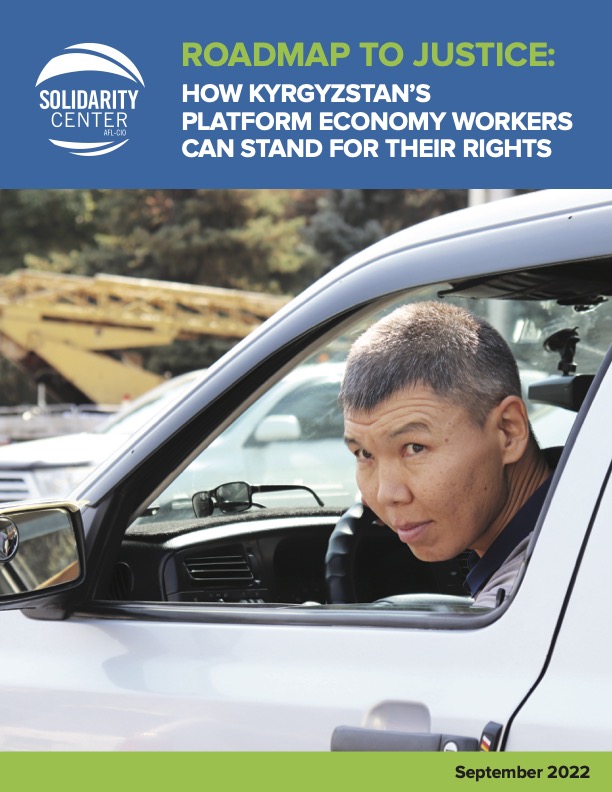
Roadmap To Justice: How Kyrgyzstan’s Platform Economy Workers Can Stand For Their Rights (2022)
The digital platform share in the economy in Kyrgyzstan is growing, and with that growth, an increasing number of people are working through these platforms. Due to its growth, the vulnerability of workers in this sector has also become more apparent, especially for...
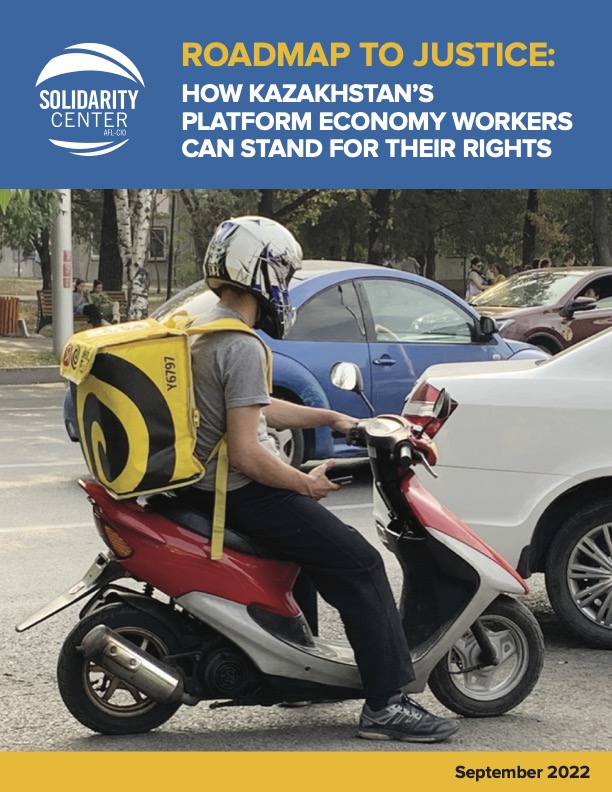
Roadmap To Justice: How Kazakhstan’s Platform Economy Workers Can Stand For Their Rights (2022)
Kazakhstan has the most developed digital market in the region, and digital platform companies operate in Kazakhstan’s major cities. With the sector’s growth, the vulnerability of workers in this segment has also become more apparent, especially for marginalized...
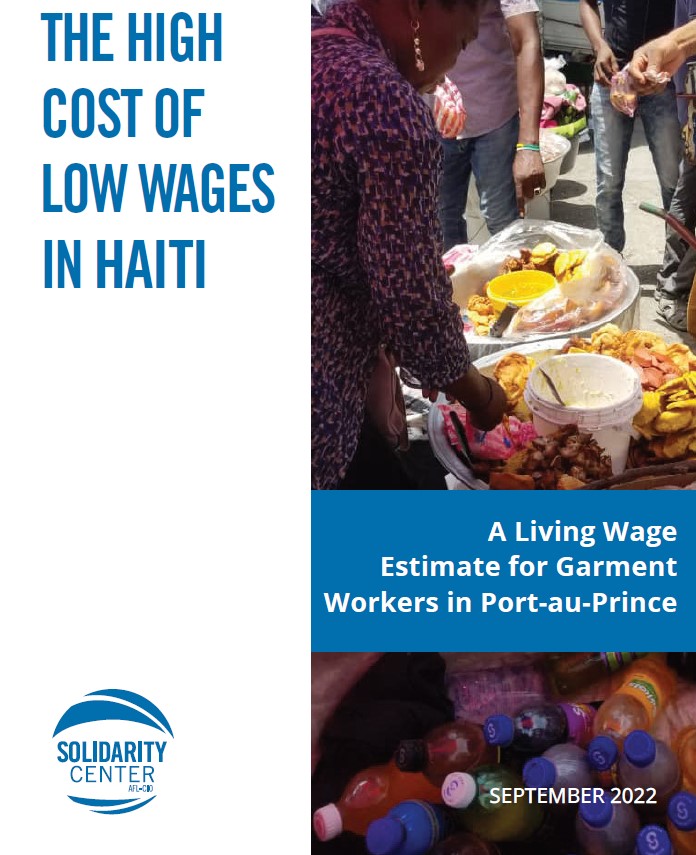
THE HIGH COST OF LOW WAGES IN HAITI (2022)
Haitian garment workers face increasing difficulty in covering basic expenditures as prices soar while wages hover far below the cost of living. Download in English and Haitian Creole.
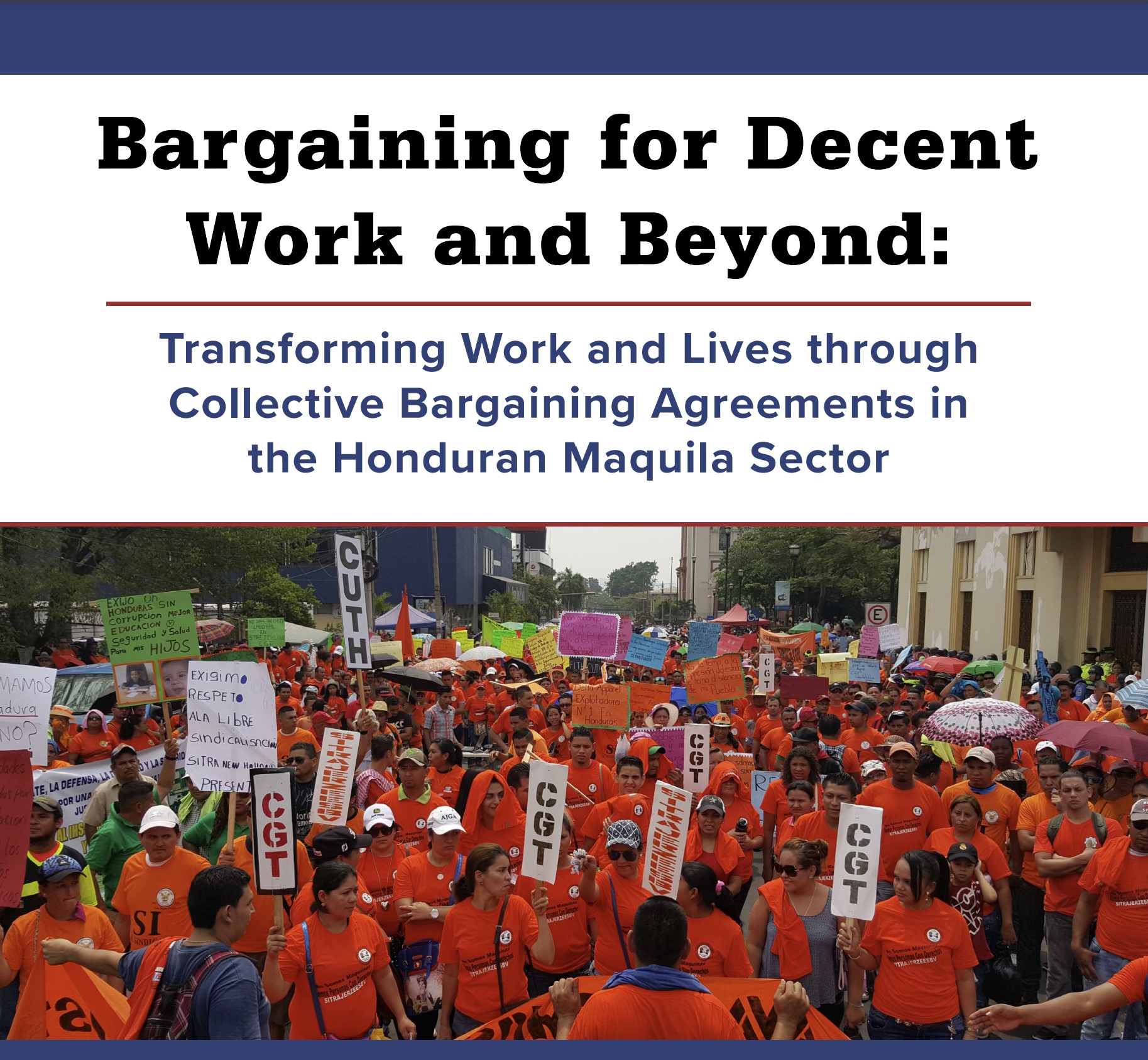
Bargaining for Decent Work and Beyond: Transforming Work and Lives Through Collective Bargaining Agreements in the Honduran Maquila Sector (2022)
Unions in the Honduran maquila sector bargain to improve work conditions and address violence at work, and so provide options for those who may migrate to seek jobs, a Solidarity Center report finds. Download in English and Spanish.
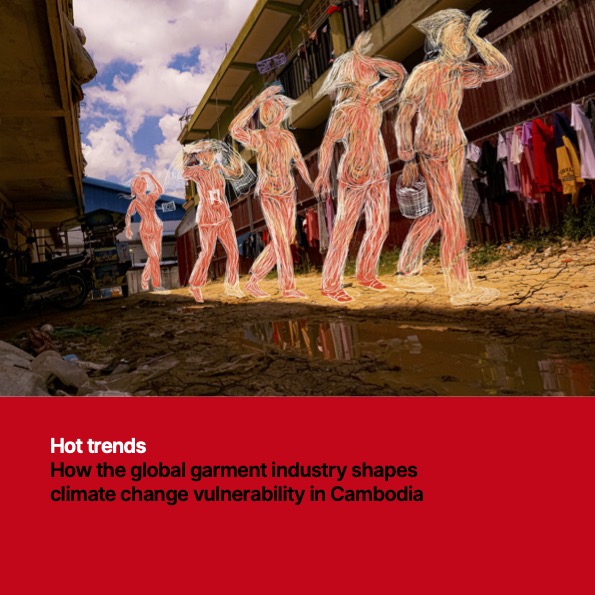
Hot trends: How the global garment industry shapes climate change vulnerability in Cambodia (2022)
In response to mounting public pressure, companies have moved rapidly to launch media campaigns highlighting their commitment to a green future. The global garment industry is no different. Behind much of this “greenwashing” remains the reality that the garment supply...
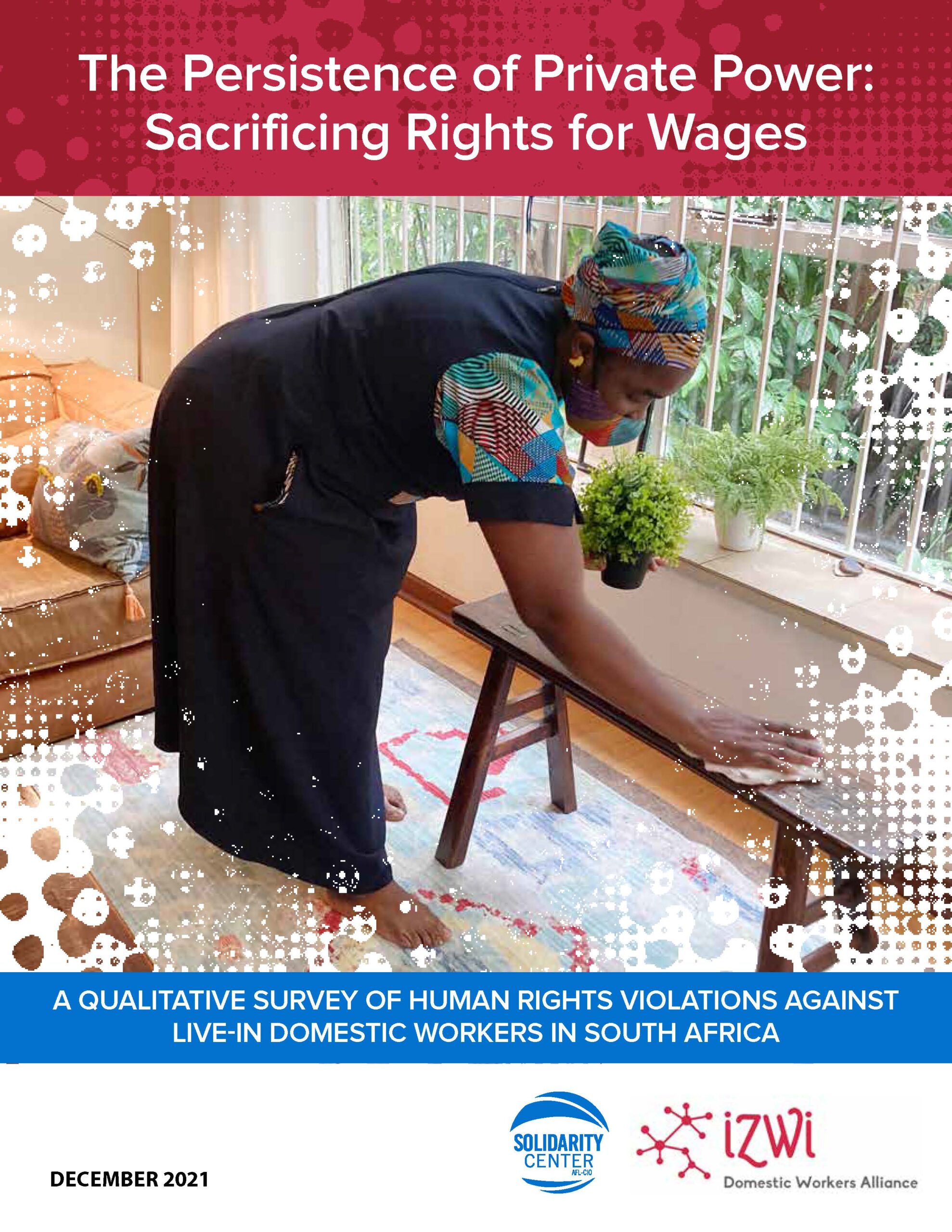
The Persistence of Private Power: Sacrificing Rights for Wages (South Africa)
"The Persistence of Private Power: Sacrificing Rights for Wages," a qualitative survey of human rights violations against live-in domestic workers in South Africa, is co-published by IZWI Domestic Workers Alliance—a network of domestic workers in Johannesburg that...

